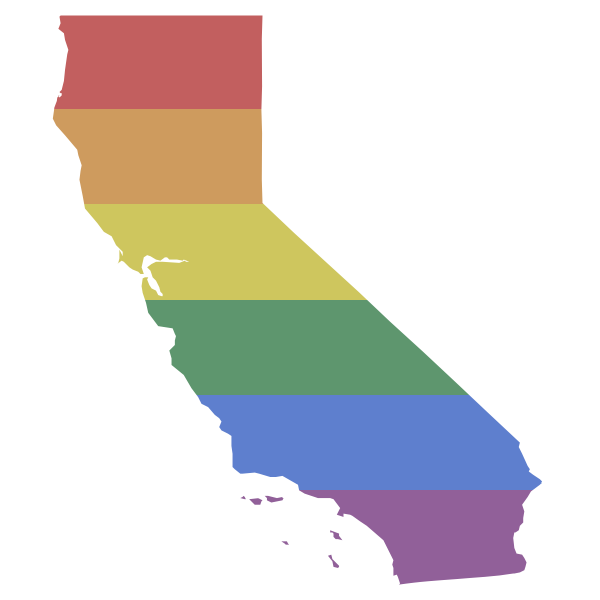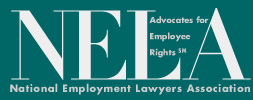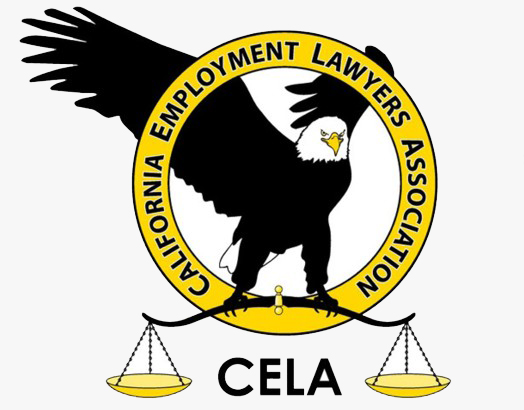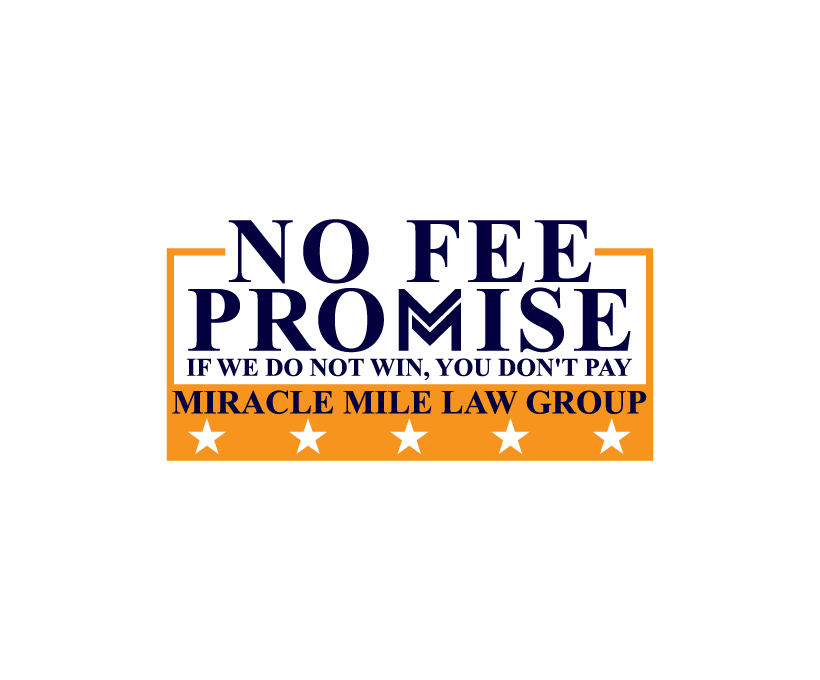LGBTQ Discrimination
In the vibrant, diverse landscape of Los Angeles, discrimination against the LGBTQ community in workplaces is a pressing concern. Miracle Mile Law Group is committed to ensuring that every individual, irrespective of their sexual orientation, gender identity, or gender expression, is treated with the respect and dignity they deserve in their professional lives.
LGBTQ Discrimination under California Law
California is a trailblazer when it comes to the protection of LGBTQ rights in the workplace. The California Fair Employment and Housing Act (FEHA) is a cornerstone in this fight. It explicitly prohibits discrimination and harassment based on sexual orientation, gender identity, gender expression, and transgender status. This progressive legislation covers a broad array of employment activities, from hiring and promotions to training and termination.
Furthermore, the California Equal Pay Act mandates employers to provide equal pay for substantially similar work, irrespective of gender, which includes an employee’s gender identity and gender expression. Beyond the state protections, federal laws like Title VII of the Civil Rights Act of 1964 have been interpreted by the U.S. Supreme Court in recent landmark rulings to encompass discrimination based on sexual orientation and gender identity.
California's Protective Framework Against LGBTQ Discrimination

The Golden State is a beacon for LGBTQ rights, offering robust protections against workplace discrimination. At the forefront is the FEHA, which categorically outlaws employment discrimination based on sexual orientation, gender identity, and gender expression. Under FEHA, employers cannot discriminate in hiring, promotions, training, or any other employment-related decisions. Moreover, FEHA requires employers to take reasonable steps to prevent and rectify any discriminatory behavior. Additionally, the Gender Recognition Act in California allows individuals to choose “non-binary” as a gender category on state-issued identification documents, underscoring the state’s commitment to recognizing and supporting all gender identities. The California Equal Pay Act also plays a role, stipulating that employees cannot be paid less for substantially similar work based on gender, which encompasses gender identity and expression. Attorneys seeking justice for victims of LGBTQ discrimination often lean on these state-specific laws, complementing them with federal provisions where applicable. Together, they form a powerful legal arsenal that Miracle Mile Law Group deploys to hold discriminatory employers accountable and champion the rights of the LGBTQ community in the workplace.
Federal Safeguards Against LGBTQ Discrimination:
At the federal level, the fight against LGBTQ discrimination has seen landmark strides. Central to these protections is Title VII of the Civil Rights Act of 1964, which prohibits employment discrimination based on race, color, religion, sex, and national origin. In recent years, pivotal decisions by the U.S. Supreme Court have expanded the definition of “sex” under Title VII to encompass discrimination based on sexual orientation and gender identity. Specifically, the groundbreaking 2020 decision in Bostock v. Clayton County held that an employer who fires an individual merely for being gay or transgender violates Title VII. Additionally, executive orders have played a part; several administrations have issued directives prohibiting LGBTQ discrimination among federal contractors and in federal employment. These federal protections, when coupled with state laws, offer a comprehensive shield against workplace discrimination, ensuring that LGBTQ employees across the nation have legal recourse against prejudicial treatment.
Examples of LGBTQ Discrimination:
- Refusal to Hire or Promote: Not hiring or advancing an individual solely based on their sexual orientation or gender identity.
- Harassment: Subjecting LGBTQ employees to derogatory comments, jokes, or slurs related to their identity.
- Unequal Pay or Benefits: Offering lower compensation or denying benefits like health coverage for same-sex partners.
- Forced Disclosure: Pressuring employees to reveal or discuss their sexual orientation or gender identity against their wishes.
- Lack of Accommodation: Not acknowledging or respecting an employee’s gender transition or refusing to provide necessary facilities.
- Retaliation: Taking negative actions against employees who report discrimination or support LGBTQ rights in the workplace.
Exclusion: Deliberately sidelining LGBTQ employees from team projects, meetings, or workplace social events.
Compensation for Victims of LGBTQ Discrimination
For individuals who’ve endured the sting of LGBTQ discrimination in the workplace, the law provides avenues for tangible redress. Victims may be eligible for back pay for lost wages resulting from unfair terminations, demotions, or denied promotions directly linked to discrimination. Front pay may also be awarded to compensate for future wage losses, especially in cases where reinstatement isn’t feasible due to a tainted workplace environment. Emotional distress damages recognize the psychological toll discrimination can have, compensating for pain, suffering, anxiety, or depression endured. In instances where the employer’s behavior is found to be particularly malicious or reckless, punitive damages might be levied as a deterrent against future discriminative actions. Additionally, wronged employees may be compensated for out-of-pocket expenses incurred, such as costs associated with job searches or medical bills arising from the discrimination. The prevailing party may also recover attorney’s fees and court costs. Miracle Mile Law Group tirelessly advocates for every penny of compensation that victims of LGBTQ discrimination are entitled to, ensuring that justice isn’t just served, but also felt.
Standing Against LGBTQ Discrimination
It’s essential to recognize that LGBTQ discrimination is not just an affront to individual rights but a detriment to the rich tapestry of diversity that defines California’s workforce. At Miracle Mile Law Group, our attorneys harness the strength of state and federal laws, paired with a deep understanding of LGBTQ-specific challenges, to champion the rights of those facing discrimination. Every individual deserves a workplace free from prejudice, where they can thrive authentically.
Sexual orientation is described as a person’s sexual identity in relation to the gender to which they are attracted. Sexual Orientation Discrimination occurs when your employee treats you less favorably, or takes some other adverse employment action against you, due to your status as gay, lesbian, transsexual, bisexual, pansexual, asexual, or even heterosexual.
Unfortunately, while there is no federal protection for Sexual Orientation Discrimination, California is one of the leading progressive states that makes a concerted effort to prohibit Sexual Orientation Discrimination. Nonetheless, the Equal Employment Opportunity Commission has of late aggressively pursued actions based on Sexual Orientation Discrimination as courts have increasingly found that the term “sex” under Title VII of the Civil Rights Act encompasses “sexual orientation.”
Sexual orientation is described as a person’s sexual identity in relation to the gender to which they are attracted. Sexual Orientation Discrimination occurs when your employee treats you less favorably, or takes some other adverse employment action against you, due to your status as gay, lesbian, transsexual, bisexual, pansexual, asexual, or even heterosexual.
Maybe. The courts have held that a single comment or an isolated incident of negative remarks do not rise to the level of Sexual Orientation Discrimination. However, if the conduct becomes so pervasive or severe to a reasonable person, then the employee may have a viable claim against their employer. It is important to consult a lawyer to see exactly how the facts of your case could be presented to prove that you were discriminated against.
Examples of Previous Sexual Orientation Lawsuits
- Macy v. Dep’t of Justice: A transgender woman who worked as a police detective in Phoenix relocated to San Francisco and began seeking employment. The detective was a man but was in the process of transitioning to a woman. Her supervisor told her that another department had an opening for which she was qualified for. After she disclosed her intentions on changing her sex, she was told the position was no longer available. The EEOC held that Title VII of the Civil Rights Act includes Sexual Orientation Discrimination as a form of Sex Discrimination.
- Hively v. Ivy Tech Community College: a female professor who was openly lesbian applied for a full-time position on numerous occasion but was denied every time. She then filed an EEOC claim, complaining that she was denied full-time status based on her status as a lesbian. While the lower court ruled against her, the appeals court found that: a man in her position, that is a man in a relationship with woman, would not have be treated similarly if applying to the position, and therefore “paradigmatic sex discrimination” was present; “a person who is discriminated against because of the protected characteristic of one with whom she associates is actually being disadvantaged because of her own traits”; and Ultimately, Title VII of the Civil Rights Act’s interpretation of “sex” discrimination encompasses sexual orientation discrimination.
- A lesbian worker who was employed for a pallet manufacturer was constantly harassed by her supervisor. For example, her supervisor made numerous comments to her regarding her sexual orientation and appearance, such as “I want to turn you back into a woman” and “You would look good in a dress,” among other actions. After she complained to the higher ups, she was fired. The EEOC and the company came to a settlement of $202,500. However, another reason this case is so important is because it is one of the first settlements regarding Sexual Orientation Discrimination.
- EEOC v. Pallet Companies, d/b/a IFCO: A gay employee who worked for a car dealership was subjected to a continuing course of unwelcome and offensive conduct which became so intolerable that the employee was forced to quit. The case later settled for$100,000.
You are not required to disclose your sexual orientation to your employer as it is a private matter. However, if your employer is discriminating against you due to your status as lesbian, bisexual, gay, or transsexual it may be wise to disclose your orientation in an effort to get them to stop. In fact, during litigation your employer may try to say that because they did not know of your orientation, they are not liable for your loss.
Nonetheless, if the harassment or discrimination continues after you disclose your orientation, you may have a strong case. Talk to an LGTBQ discrimination lawyer as soon you notice suspicious or egregious behavior by your employer.
- It’s unlikely that a supervisor’s religious belief is a solid reason to harass or discriminate against someone due to a particular sexual orientation. Nonetheless, it happens. In some states certain religious organizations may be exempt from anti-discrimination laws. For example, a church may be entitled to hire only people who hold similar religious beliefs.The law is always progressing when it comes to sexual orientation/LGBTQ discrimination as more and more people are becoming aware of their gay co-workers, neighbors, family members, friends, and professionals. Nonetheless, there is no bright line rule to determine whether an employer can use his or her religious beliefs as a justification to discriminate based on sexual orientations. However, past cases show that a judge or jury will not consider religious beliefs as a legitimate reason to discriminate or harass another based on that person’s sexual orientation. Talk to an LGTBQ discrimination lawyer now to understand your rights.
-
- The answer to this question is still being tested by some courts around the United States. However, some precedent shows that we are moving in the right direction. States like Colorado, Iowa, and Vermont require employers to allow employees to use the bathroom with which they identify with.Employees can also look to the Occupational Safety and Health Administration (OSHA) for guidance to this question. OSHA states that employers should not place unreasonable restrictions on bathroom use. OSHA has held that when employers do not allow employees access to the bathrooms for the gender they identify with, anxiety and other psychological damage ensues. This may be an unreasonable restriction.OSHA has the following recommendations for businesses:
- Allow use of bathrooms by employees for the gender that they identify with
- Provide unisex bathrooms for all employees, and
- Don’t require an employee to tell disclose which gender they identify with.
- The answer to this question is still being tested by some courts around the United States. However, some precedent shows that we are moving in the right direction. States like Colorado, Iowa, and Vermont require employers to allow employees to use the bathroom with which they identify with.Employees can also look to the Occupational Safety and Health Administration (OSHA) for guidance to this question. OSHA states that employers should not place unreasonable restrictions on bathroom use. OSHA has held that when employers do not allow employees access to the bathrooms for the gender they identify with, anxiety and other psychological damage ensues. This may be an unreasonable restriction.OSHA has the following recommendations for businesses:
-
Statute of Limitations
A statute of limitations refers to the amount of time you have to file a lawsuit in a court of law. If you do not file within the time permitted of a statute of limitation, then you lose the chance to recover for your damages. Sexual orientation lawsuits have a statute of limitations.
What is the Statute of Limitations for a Disability Discrimination Lawsuit?
If you are suing for LGTBQ discrimination, you have 180 days from the date of last discriminatory act to obtain a right-to-sue letter from the Equal Employment Opportunity Commission (EEOC). After this you have 90 days to file suit in a court of law. On the other hand, the Department of Fair Employment and Housing (DFEH) gives you one year from date of last discriminatory act to obtain a right-to-sue letter. After obtaining the right-to-sue letter, the DFEH gives you another to file a lawsuit in State court. Therefore, your wrongful termination case is time sensitive, so you must act fast in contact a lawyer to preserve your rights.
What If the Time Has Passed for Me to File A Wrongful Termination Lawsuit?
In most cases, if you do not file a timely lawsuit within the statute of limitations, then there is no chance of recovery. However, there is one option that a skilled lawyer can pursue. This includes the Continuing Violations Doctrine. The Continuing Violation Doctrine may extend the one-year time period if the employee’s lawyer can prove that some of the employer’s conduct fell outside the one-year period AND the conduct was sufficiently linked to the conduct that does fall within the one-year period.




